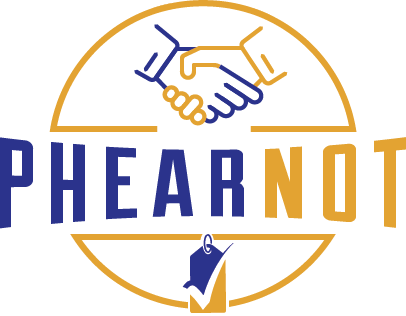
A Pill-by-Pill Account Of Legal Remedies Available To Victims
When we step into a hospital, we entrust our well-being to the hands of healthcare professionals. And for good reason. Yet, in medical care, medication errors significantly threaten patient safety.
Understanding the landscape of hospital medication errors is essential for patients and the broader healthcare system. Below, we will expand on these errors, exploring their causes, potential consequences, and actionable steps to mitigate risks.
Recognizing the Spectrum of Medication Errors
Hospital medication errors encompass a range of mistakes in the medication process. These may include prescribing, administration, dispensing, and monitoring errors. Seeking a skilled lawyer can improve your claim and offer you more information on the types of medical errors that can occur. Visit this link, https://www.yourfloridatrialteam.com/miami-medical-malpractice-lawyer/ for more information on medical malpractice.
Recognizing the diversity of these errors is crucial for addressing vulnerabilities at each stage of the medication journey.
Identifying Common Causes of Medication Errors
Understanding the root causes of medication errors is fundamental to developing effective prevention strategies. The root causes are often multifaceted, reflecting a combination of systemic issues and individual challenges:
Communication Breakdowns
One primary cause of medication errors is healthcare team communication channel breakdowns. In a fast-paced environment, transmitting crucial information from prescribers to nurses and pharmacists can be susceptible to misinterpretation or oversight.
Addressing communication gaps demands a holistic approach involving enhanced teamwork, clear documentation practices, and standardized handover protocols.
Inadequate Training
Healthcare professionals are entrusted with the delicate task of prescribing, administering, and managing medications. Inadequate training in any of these aspects can lead to errors.
Comprehensive education programs encompassing pharmacology, dosage calculations, and the utilization of evolving technologies are pivotal in ensuring that healthcare practitioners are well-equipped to handle the complexities of modern medication management.
Workload Pressures
The demanding nature of healthcare environments and high patient volumes place healthcare professionals under considerable stress. Workload pressures contribute significantly to errors, as professionals may be more susceptible to fatigue and oversight.
Mitigating this cause involves ensuring adequate staffing levels, implementing strategies such as regular breaks, and fostering a culture that prioritizes the well-being of healthcare providers.
Illegible Prescriptions
The age-old issue of illegible prescriptions continues to plague the healthcare system. Handwritten orders that are difficult to decipher can lead to administration of the wrong medication or dosage. Transitioning to electronic prescribing systems eliminates this challenge, enhancing order clarity and reducing the possibility of misinterpretation.
Lack of Standardized Systems
Disparities in medication management systems across healthcare institutions can introduce inconsistencies and confusion. The absence of standardized protocols for prescribing, dispensing, and administering medications heightens the risk of errors.
Implementing universal best practices and adopting technology-driven solutions can foster a more streamlined and standardized approach to medication management.
The Impact on Patient Safety
The consequences of medication errors can be severe, ranging from mild side effects to life-threatening complications. Patients may experience allergic reactions, adverse drug interactions, or receive the wrong dosage. In extreme cases, medication errors can lead to prolonged hospital stays, disability, or even fatalities. Acknowledging the potential impact underscores the urgency of robust preventive measures.
Implementing Technological Solutions for Medication Management
Embracing technology plays a pivotal role in reducing medication errors. Electronic prescribing systems, barcode scanning, and automated dispensing machines enhance accuracy and streamline the medication process. Integrating these technological solutions minimizes the reliance on manual processes, reducing the likelihood of human error.
Enhancing Medication Education for Healthcare Professionals
Education forms a powerful tool in the prevention of medication errors. Continuous training for healthcare professionals on medication safety, dosage calculations, and the proper use of technology fosters competence and confidence.
Well-informed professionals are better equipped to navigate the complexities of medication management.
Engaging Patients in Medication Safety
Patients are integral partners in their care. Empowering them with knowledge about their medications, including names, dosages, and potential side effects, enhances their ability to identify and report errors. Encouraging an open dialogue between patients and healthcare providers reinforces a collaborative approach to medication safety.
Conducting Medication Reconciliation
Medication reconciliation, creating the most accurate list of a patient’s medications, is crucial during care transitions. Ensuring accurate and up-to-date medication lists minimizes the risk of discrepancies and errors when patients move between different healthcare settings.
Establishing a Solid Reporting and Monitoring System
Implementing a comprehensive reporting and monitoring system allows healthcare institutions to track medication errors, analyze patterns, and implement preventive measures. Reporting near misses, where errors were caught before reaching the patient, provides valuable insights into potential vulnerabilities.
Advocating for Systemic Changes in Healthcare
Beyond individual measures, advocating for systemic changes in healthcare policies and procedures is vital. This includes promoting standardized protocols, adequate staffing levels, and a supportive work environment prioritizing patient safety. A collective effort towards systemic change contributes to a safer healthcare landscape.
Take the Best Legal Route For You
Understanding medical malpractice and hospital medication errors requires a multifaceted approach involving healthcare professionals, patients, and systemic changes. By addressing the root causes, embracing technology, fostering a communication culture, and prioritizing education, the healthcare community can work together to minimize medication errors and uphold the safety of every patient under their care.






